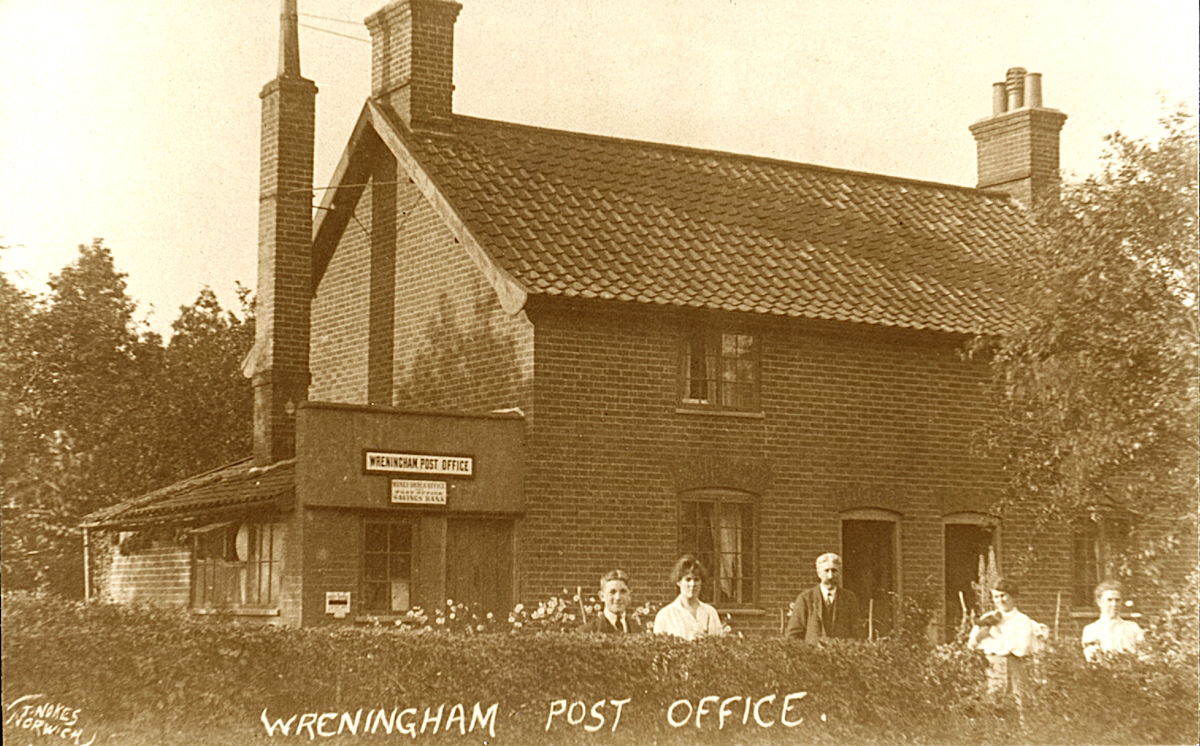
Post Offices in Wreningham
The County Directories have been a very useful source of data, although the first Directory to which we have access – from 1838, did not provide details for Wreningham. The nearest Post Office it describes was in the Market Place at Wymondham. Letters arrived in Wymondham (from a South Westerly direction) every morning at eight and were despatched in the opposite direction at six. Letters from Norwich arrived every evening at six and were despatched to Norwich each morning at eight. Hence, we might presume Wymondham was a calling point in a service running in and out of Norwich towards London.
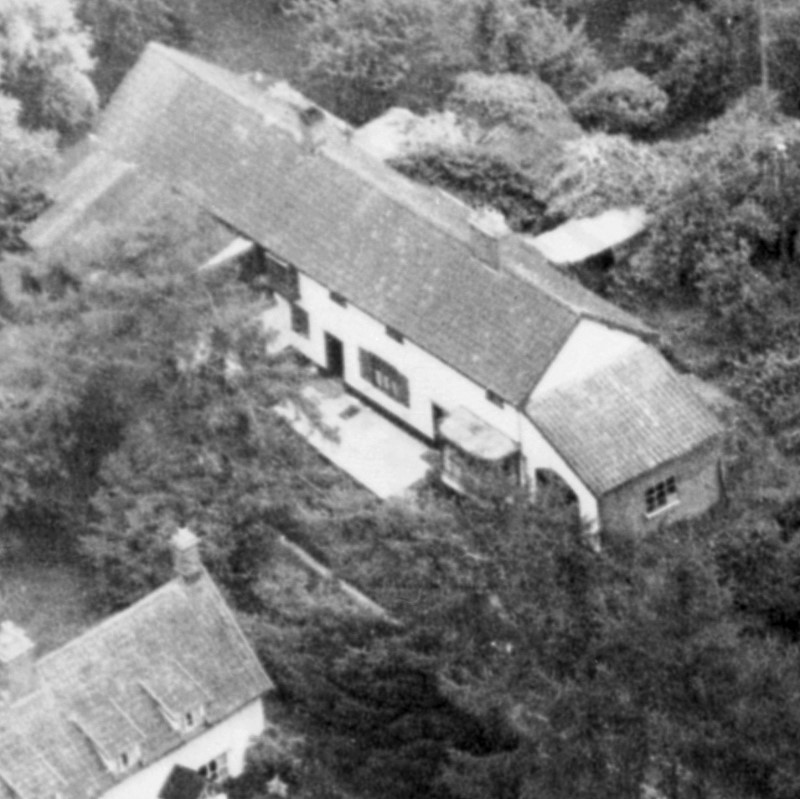
The introduction of the uniform Penny Post, in 1840 resulted in an expansion of the nation’s postal system.
There are references to a Wreningham mail service c1865 and we know that Robert Day was receiving letters at his shop: The Larches, Wymondham Road, by way of Wymondham, from 1865.
See more information about the original shop on the page describing his son: Robert Dennis Day.
By 1869, Letters from Wymondham were received at Robert Day’s shop by 9am and outgoing letters were collected at 5.30pm.
In 1875, James Ratee is understood to have become the sub-postmaster although the location of “his” Post Office is unclear. Did he share Robert Day’s shop? The County Directory states the nearest telegraph office was in Wymondham – which remained the case until the end of the 1800s.
Alfred Quantrell took over the Post Office c1877. He was a man of many trades but was principally known as a farmer; the Post Office moved to his home at Peartree Farm, Wymondham Road. The farm belonged to his father-in-law – George Childs.
A County Directory of 1883 describes the Post Office as including a Money Order Office. Letters were now arriving at the Post Office by 8.45am and departing at 5.15pm.
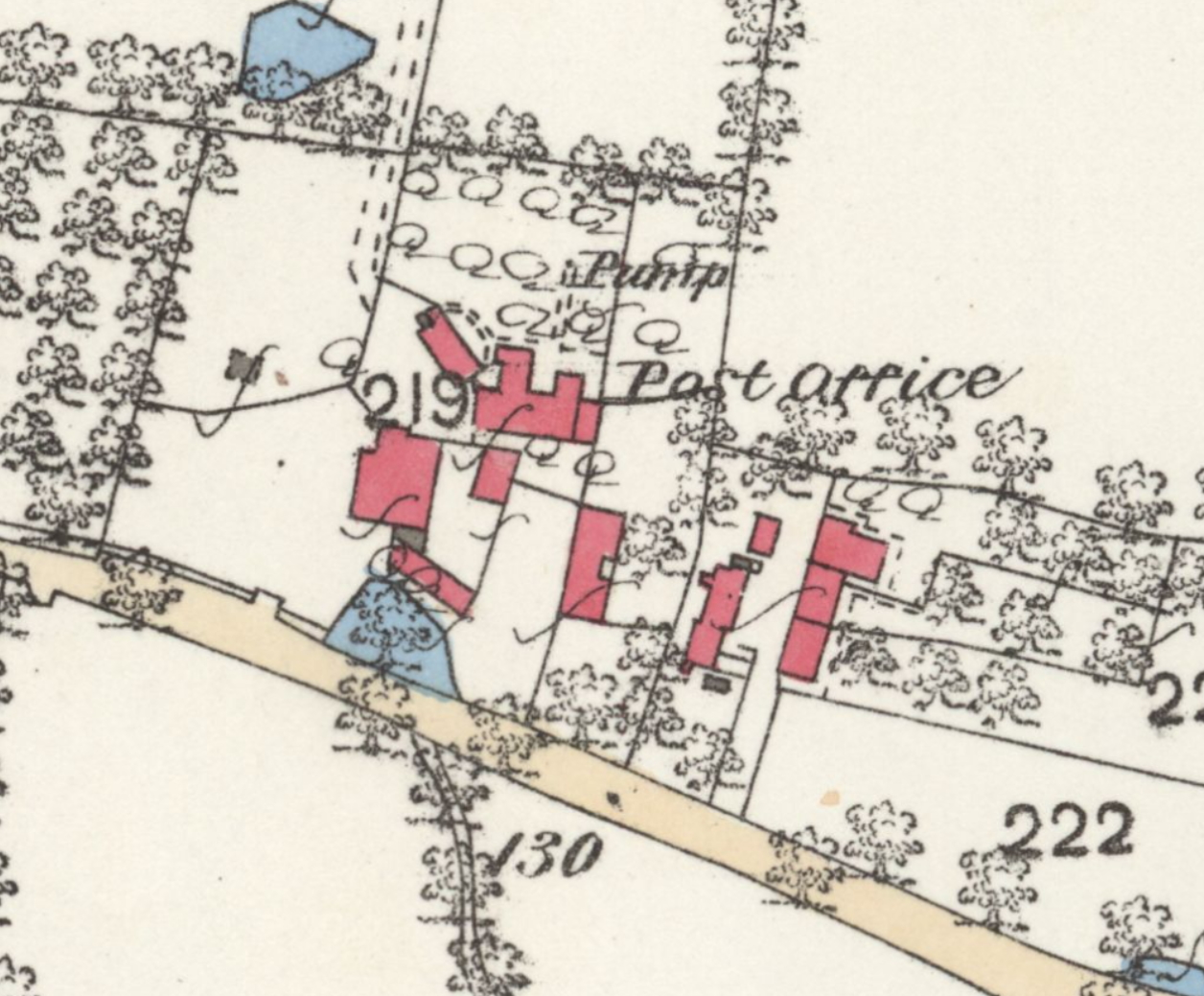
John Kersey took over the Post Office on 6th January 1885. He was a tailor and lived at the north end of Ashwellthorpe Road. Today, his house is called “The Old Post Office”. He had married Ellen Elmer, a schoolteacher who had worked at Wreningham school on the opposite side of the road. Both were well into middle age at the time of their marriage. Perhaps Ellen served the Post Office customers whilst John concentrated on his tailoring?
Letters still arrived / departed the village at roughly the same times as before. In addition, there was now a “Pillar Letter Box” on Norwich Road – emptied at 5.40pm on weekdays.
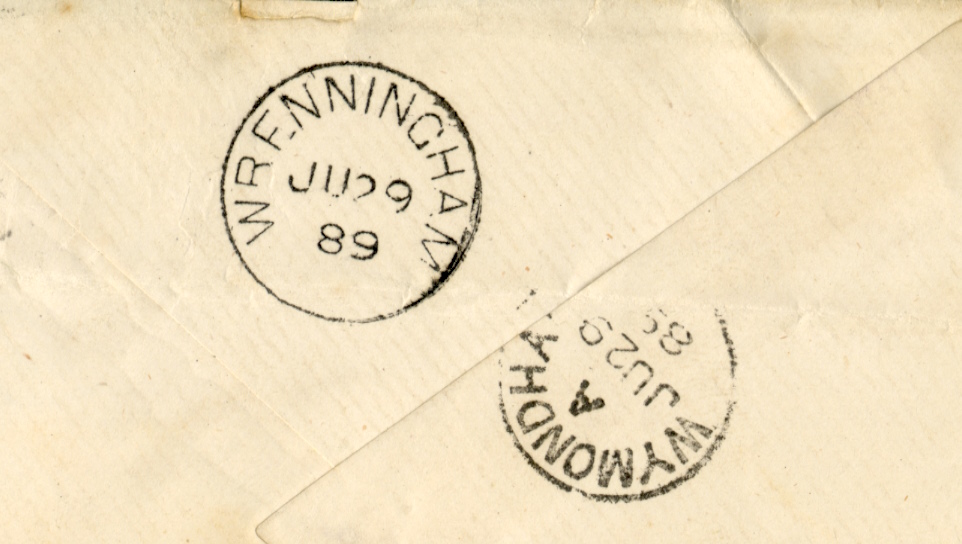
On 29th July 1889 this envelope passed through both “Wrenningham” and Wymondham.
By 1892, an “S B Annuity & Insurance Office” was included within the Post Office. There was also a Mr Arthur Blaxall, Insurance Agent, in Wreningham. Was Arthur Blaxall connected with the insurance office? In which case, did he work alongside John Kersey?
In 1904, Frederick Bell became village Postmaster. He was still operating the Post Office from its lean-to shed on the side of John Kersey’s house. Mail now arrived in the village (from Norwich) at 6am and 2.30pm and departed at 10.30am and 6.30pm. The nearest Telegraph Office was now at Mulbarton and the Pillar Letter Box was emptied twice: at 8.15am and 6.10pm – but only on weekdays.
In 1910, Frederick Bell engaged Robert D Day to make some new furniture for the Post Office.
By this time, R D Day’s handwriting was leaving something to be desired! His ledger’s listing appears to be describing three drawers mounted into a framework with fitted locks and three keys.
The price was £1 4s and payment was received on August 6th 1910.
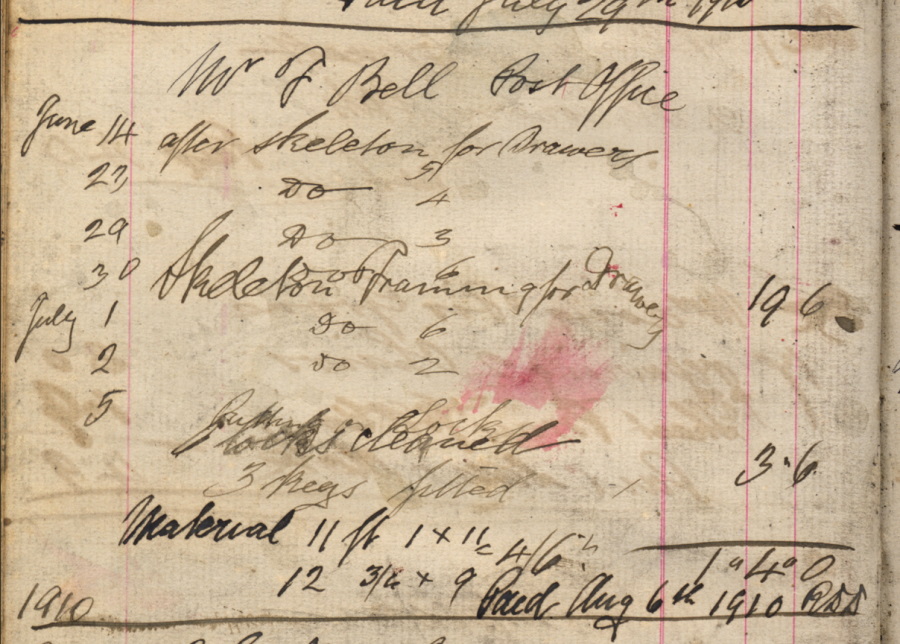
County Directories appear to be recording a similar story until Mrs Aves took over the Post Office in 1934. She ran it until 1946, followed by William Hill, until he retired in 1950. After him came Mrs Folwell, until 1957.
The final Wreningham Post Office in Wreningham was run by Mabel Ireland. In that same year, Mr L Bateman took over from James Wiseman who retired from having been village postman for 50 years.
Mabel Ireland relocated the Post Office to a “summerhouse” on rear of her Toprow home by getting the contents moved on a trailer.
In the autumn of 1963, local carpenter Mr Ford made minor improvements to the Post Office. He fitted a new door and a new partition as well as repairing the floor and providing a hardboard covering for the counter and table-top. His carpentry bill totalled £8 4s 11d.
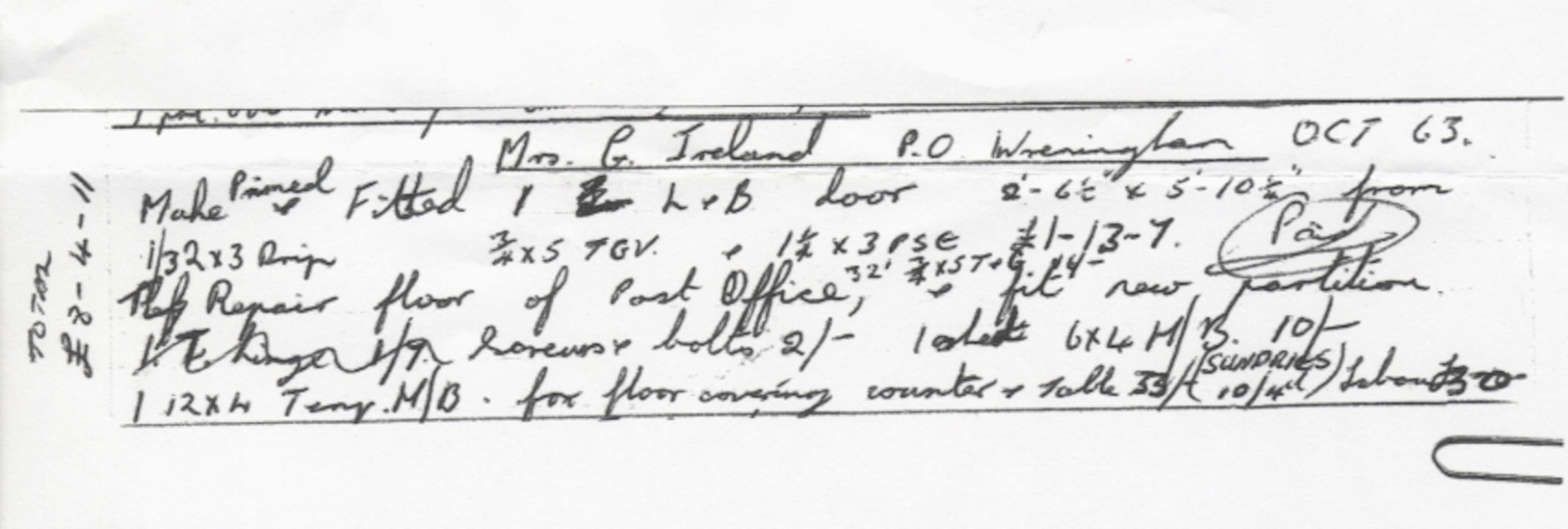

Mabel and her husband, George, decided to call it a day in 2001 when the Post Office computerised all its systems; she told a local newspaper that she did not consider herself suited to the new technology. By that point, Mabel was 84 and had been providing the village service for 44 years.
After a continuous period of about 140 years, Wreningham no longer had a Post Office of its own.
